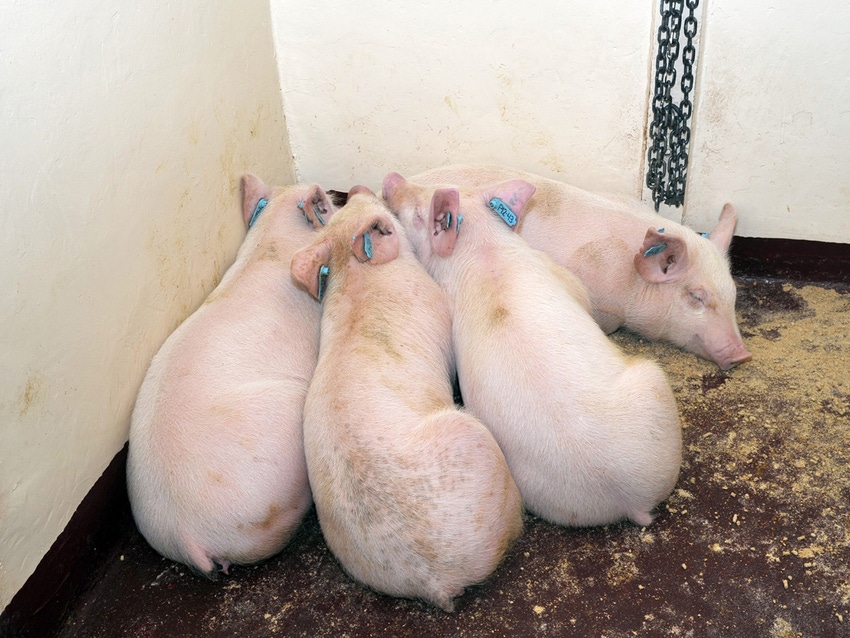K-State researcher awarded $2.6 million to fight African swine fever
Research to identify which ASFV proteins induce protective immune responses; differentiate infected pigs from vaccinated ones.
April 29, 2024

A Kansas State University researcher has new support to battle one of the biggest global threats to pigs and swine production, which is a $57-billion-dollar industry in the United States.
The Foundation for Food & Agriculture Research, or FFAR, recently awarded a $1 million Seeding Solutions Grant to Waithaka Mwangi, immunology professor in the department of diagnostic medicine and pathobiology in K-State's College of Veterinary Medicine, to support his ongoing work to develop safe and rapidly deployable vaccines to prevent African Swine Fever virus.
Elanco Animal Health, K-State's Office of the Vice President for Research, Kansas State University Innovation Partners and MEDIAN Diagnostics Inc. provided matching funds for a $2,645,427 total investment.
ASFV is a highly contagious, fatal disease in pigs that spreads rapidly. Currently, there is no commercially available treatment or vaccine for the virus.
That's why Mwangi and his team are working urgently to develop and validate a promising vaccine that could protect pigs from the virus.
"Certain proteins inherent within the virus can activate an immune response in swine," Mwangi said. "My research is identifying which ASFV proteins induce protective immune responses, the optimal dose, the most effective immunization platform and a way to differentiate infected pigs from vaccinated ones. This FFAR Seeding Solutions grant provides the funds for us to leverage additional stakeholder support needed to fund the necessary research to validate the effectiveness of a prototype vaccine that has already generated promising results."
Mwangi's work comes as swine producers urgently search for a way to protect their herds, since without a preventative vaccine or treatment, the only way to control ASFV is through enhanced biosecurity methods, such as quarantining or culling infected pigs.
ASFV has existed in Africa for decades, but the virus has started to spread globally, with cases detected recently in the Dominican Republic and Haiti.
Outbreaks in the U.S. would be staggeringly devastating — not just for the pork industry, but also for other agriculture commodities, such as corn and soy, that support it.
"Should the virus reach the U.S., outputs from this research could slow the virus's spread, protect millions of U.S. pigs and safeguard our food supply," said Jasmine Bruno, Ph.D., FFAR scientific program director for Cultivating Thriving Production Systems.
Additionally, Mwangi's research team is addressing safety concerns and production constraints that would allow regulatory agencies to approve the use of this vaccine.
You May Also Like



